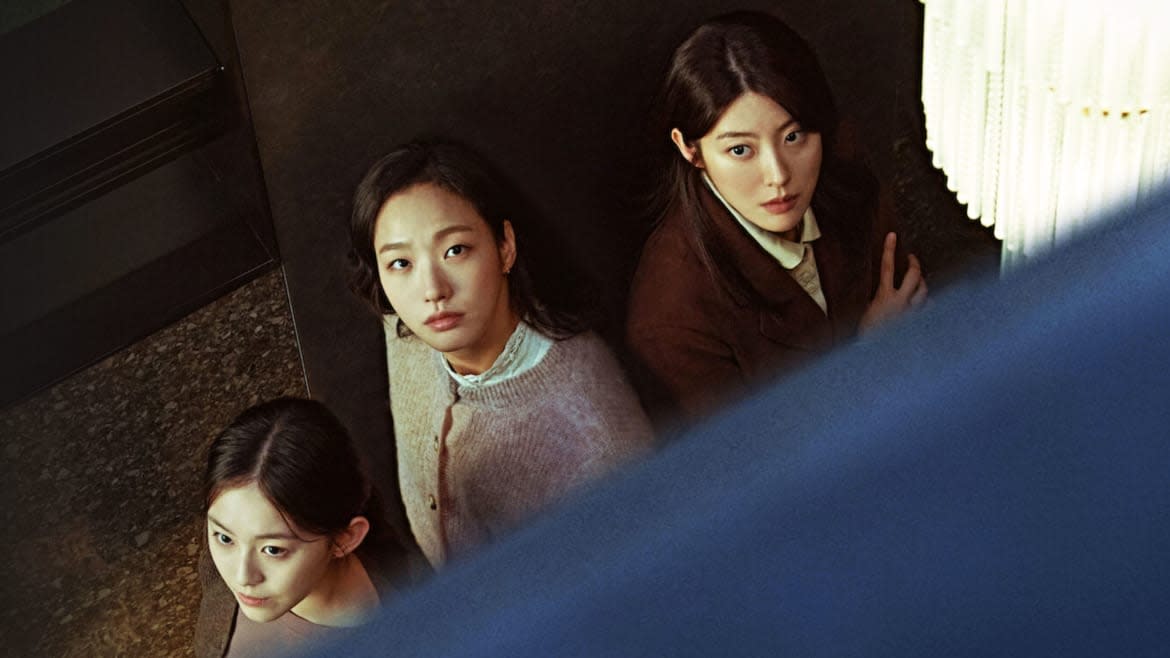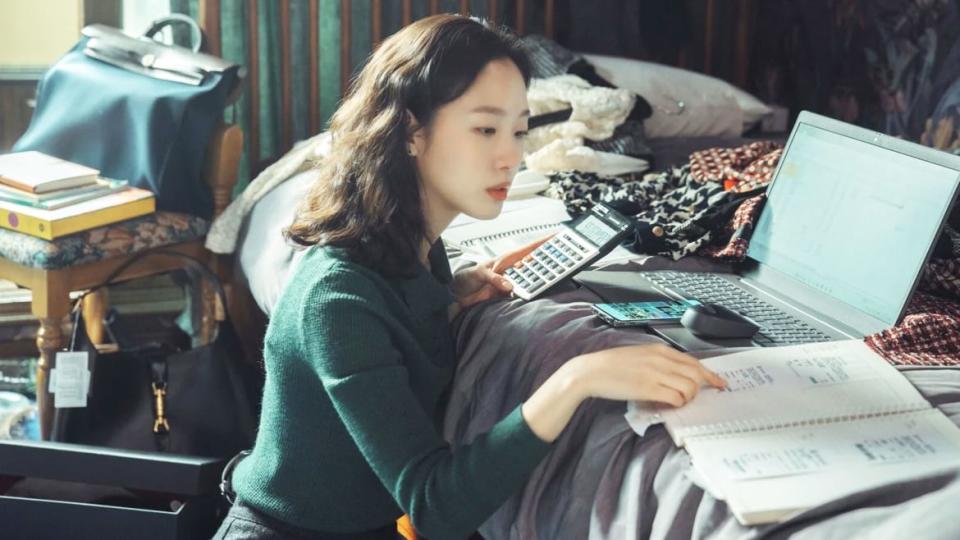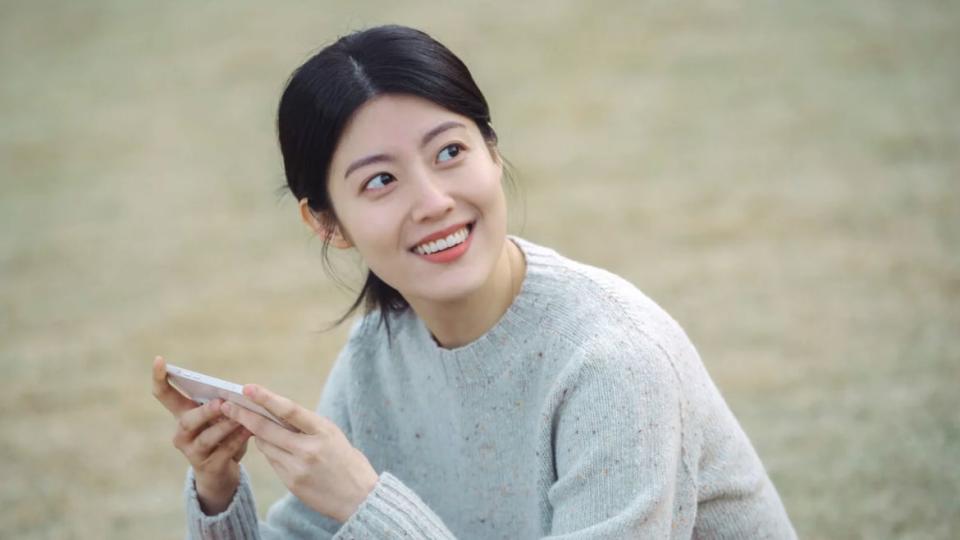Netflix’s Take on ‘Little Women’ Is Beyond Anything Alcott Could Have Dreamed of

- Oops!Something went wrong.Please try again later.
- Oops!Something went wrong.Please try again later.
Little Women adaptations have long graced the stage and screen, each version playing with various elements of Louisa May Alcott’s famous novel. Some, like the beloved 1994 movie and the BBC’s 2017 Maya Hawke-led serial, have been more faithful to the source text. Others, like Greta Gerwig’s 2019 film, interweave moments from the novel’s two volumes to tell a more profound story. Clare Niederpruem’s 2018 movie modernizes the work; Kate Hamill’s 2018 play revolutionizes it; the 1933 film simplifies it.
With so many versions, we could learn a lot about one another by asking, “Which Little Women is your Little Women?”
What the ‘Little Women’ Outrage Is Conveniently Missing
But no adaptation has pushed past the original text quite like director Kim Hee-won’s TV series, which premiered earlier this month. It will cover the novel across 12 episodes, a new one dropping each Saturday and Sunday on Netflix until Oct. 9. The show thrusts Alcott’s novel into modern South Korea, placing its version of the March sisters into a melange of embezzlement, murder, and high-society drama. The result is an entertaining mystery that’s surely worth a watch—if you leave your preconceived notions about Little Women at the door.
The series follows the impoverished Oh sisters, namely the older duo In-joo (Kim Go-eun) and In-kyung (Nam Ji-hyun), as they struggle to provide a better life for their younger sister In-hye (Park Ji-hu). Their father lives in the Philippines, leaving behind a horde of debts for the sisters to pay off. Mother Ahn Hee-yeon (Park Ji-young) helps, but she’s notably bitter about giving up her life to raise kids. Instead, she longs to leave South Korea and travel abroad. When In-joo and In-kyung surprise In-hye with money to go on her prestigious art school’s Europe trip, Hee-yeon gets her chance. She steals the family’s money, ditches her daughters, and flees to meet her husband in the Philippines.
In the aftermath, In-joo vows to fund In-hye’s Europe trip, getting a personal loan from her coworker, Jin Hwa-young (Choo Ja-hyun). Like In-joo, Hwa-young is treated like an outcast at work for being poor, but In-joo begins to suspect that Hwa-young may be more familiar with a sophisticated lifestyle than she’s letting on. When In-joo later finds her friend dead, supposedly from suicide, she questions just who exactly Hwa-young was—and who she was associated with. Even more shocking is a missing 70 billion won, which the company suspects Hwa-young stole. But the company doesn’t know that Hwa-young secretly left 2 billion of it to In-joo.

Just from that recap, this K-drama might already raise some eyebrows for Alcott fans. (Side note: I’m not quite sure what to call Little Women fans. “The Little Women” or “Little Women Army” come to mind.) This is a wildly different show than what the Little Women Army may have been anticipating. Marmee isn’t the Marmee we know, the story is more whodunit than coming-of-age, and a “living a double life” trope gets shoehorned into the final moments of episode one.
But it’s to the show’s benefit that Kim, best-known for her 2021 series Vincenzo, has upended expectations. By playing with beloved characters and tossing much of the novel’s plot out, she’s created a Little Women take that’s fresh and innovative.
One of Kim’s other immediately noticeable changes is the presence of only three March sisters rather than the traditional four, and they’re several years older than their novel counterparts. In-joo’s the eldest, a divorcée and bookkeeper at a powerful corporation. Kim brings a sort of whimsy and giddiness in her portrayal, exuding a combination of both of Meg’s sensibility and Amy’s materialism. In-hye, meanwhile, is strongly reminiscent of Jo. The tomboyish journalist has a strong moral compass, which conflicts with her job requirements to maintain composure while reporting on the latest tragedies. Park does sharp work here, hiding her emotions, and the character’s alcoholism, behind stoicism—before showing a few cracks in her demeanor. And Little Women shapes In-hye after Beth and Amy, creating a volatile and moody youngest sibling.
In-hye plays a special role in the series, connecting all of the sisters’ distinct plots. While In-joo investigates Shin Hyun-min (Oh Jung-se), the company director who was supposedly having an affair with Hwa-young, and In-kyung follows a lead involving Park Jae-sang (Um Ki-joon), a wealthy attorney and candidate for mayor of Seoul, In-hye is sort of caught in the middle. She befriends Park’s daughter, creating tension and forcing her sisters to reconsider how they go about their investigations. When they’re all in the same room, it’s unclear who knows what and who did what to whom.

Each hour-long episode fits squarely within the suspense genre, hitting beats and tropes that may feel familiar to anyone who’s read a classic detective novel or watched a recent procedural show. It’s often easy to see where the screenplay’s taking us and when shocking reveals will come. But that’s not to say that everything in Little Women is predictable. In episode three, we discover that the Ohs did have a fourth sister, who died as an infant from a terminal heart condition. It’s shocking when In-hye develops that same illness, putting her in the hospital for a bit and nearly killing her.
Predictability isn’t necessarily a bad thing, either. Early into Director Shin’s inquiry into the missing 70 million won, we meet Choi Do-il (Wi Ha-joon), an executive who seems to be aligned with Shin and Park. It quickly becomes obvious that he’s helping In-joo while also developing some sort of a romance with her. The “will they or won’t they” arc goes on as expected, but the potential for a steamy romance is happily welcomed. Wi, who gained international stardom from his recent role in Squid Game, is somehow more handsome in Little Women. His swooping hair and brooding demeanor make him the perfect love interest.
Netflix’s ‘Money Heist: Korea’ Is ‘Squid Game’ Meets a Cheesy Heist Movie
Regardless of how faithful this series is to the trappings of suspenseful TV, it’s clearly divergent from its source material. Kim does, though, explore one particular core issue from Alcott’s work: poverty. In this series, money rules lives and determines fates. Stacks of cash fill frames, practically overwhelming anything else in the shot. Characters are defined by what they wear, and where they dine, shop, and lounge. Everyone talks about wanting a nose job—a funny reference to Amy’s desire for a more aristocratic nose. Even the clinking sounds of coins fill the score.
The series’ pointed commentary on class calls back to the economic struggles of the March family and their relationships to richer households. But it takes the March family’s poverty to another level, pushing the sisters into desperation. In-joo dreams of using the 2 billion won to buy an apartment and keep her family safe from everything. In-hye tells her sisters she would sell her body and soul to the Parks for their lavish lifestyle. The sisters’ great aunt Oh Hae-seok (Kim Mi-sook)—who’s by far the most similar to the character she’s based on, the perfectly unfeeling Aunt March—believes that capitalism is purely a psychological game of risk and reward.
The modernization of these issues is the strongest thread between Kim’s series and Alcott’s novel. But even the class conflicts are more sensational and depraved than anything Alcott could have dreamed of. While all these changes might make the show Little Women-inspired than an actual adaptation, it nevertheless breathes new life into the classic coming-of-age antics. What we have here is a sort of Alcott-Agatha Christie-K-drama amalgamation that’s worth the watch so far, even—maybe especially!—for die-hard Little Women fans.
Get the Daily Beast's biggest scoops and scandals delivered right to your inbox. Sign up now.
Stay informed and gain unlimited access to the Daily Beast's unmatched reporting. Subscribe now.

